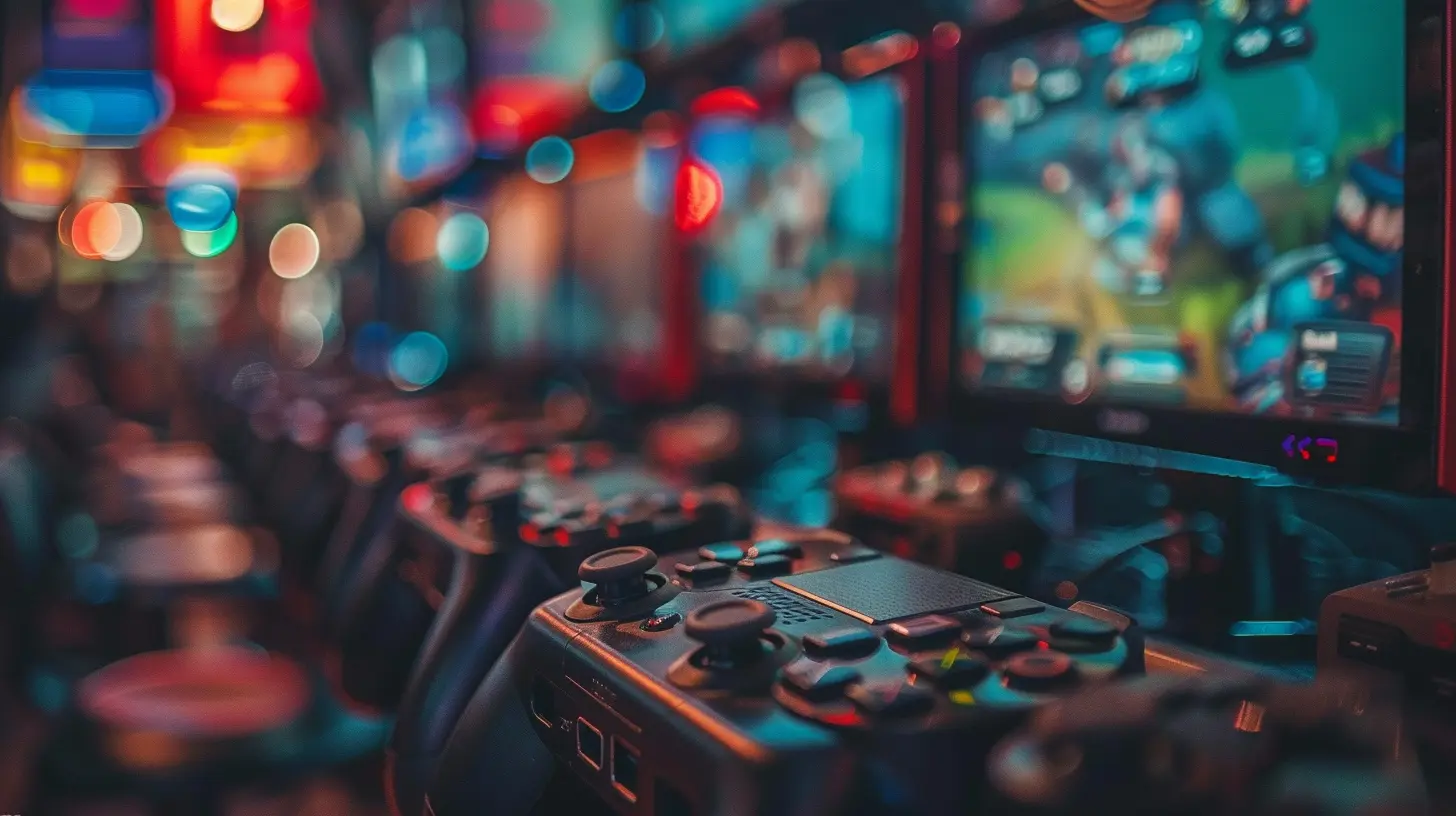What Role Does Localization Play in Expanding Global Game Markets?
6 May 2025
Gaming is big—like, really big. We’re talking billions of players worldwide who are diving into immersive narratives, battling monsters, solving puzzles, and just flat-out having fun. But here’s the kicker: not everyone speaks English, and not every culture resonates with the same jokes, references, or gaming mechanics. This is exactly where game localization swoops in to save the day.
Localization is like adding a universal adapter to your game, making it seamlessly work for different languages, cultures, and regions. It's not just about translating text; it’s about adapting every element of the game to make players across the globe feel like it was made just for them. Let’s dig into how localization helps gaming companies expand into global markets, why it’s so important, and how it’s shaping the future of the gaming industry.
What Is Localization in Gaming?
Alright, first things first—what exactly is localization? Think of it as giving your game a cultural makeover. It goes beyond replacing English with another language. Localization involves tweaking in-game text, subtitles, dialogue, graphics, voiceovers, and even gameplay mechanics to suit the tastes and norms of different regions.Imagine you're playing a Japanese RPG (Role-Playing Game) dubbed into English. If the localization is done poorly, you might be scratching your head at clunky dialogue or cultural references that don’t make sense to you. But when it’s done well? You feel fully immersed, like the game was always meant for you. That’s localization at its finest.
Why Does Localization Matter?
So why should game developers bother with localization? Can’t they just slap some subtitles on and call it a day? Not really. Localization can make or break a game's success in new markets. Let’s break this down:1. Reaching a Wider Audience
Imagine launching a brilliant game but only offering it in one language. Feels like shooting yourself in the foot, doesn’t it? The global gaming market is massive, with millions of players in non-English-speaking regions like China, Japan, South Korea, Brazil, and Germany. A localized game acts as a bridge, inviting gamers from all corners of the world to join the fun.Take Genshin Impact for example. The developers didn’t just create a game—they tailored it for players around the globe with multiple language options, culturally relevant content, and localized voice acting. The result? A worldwide phenomenon.
2. Cultural Relevance = Higher Engagement
Localization isn’t just about putting things into another language; it’s about making the experience feel natural for the player. Western humor might not land in Asian markets. A storyline centered around Christmas traditions might feel irrelevant in countries that don’t celebrate it. Localization ensures these cultural nuances are considered, creating a deeper connection with players.Think of it like giving someone a gift—if you don’t understand their tastes or preferences, your well-meaning gift might end up in the back of their closet. With localization, you’re giving gamers something they’ll truly appreciate.
3. Boosting Revenue
Let’s be real—game development is a business, and businesses aim to make money. Entering untapped markets through localization can significantly boost game sales. In fact, reports have shown that well-localized games outperform those that don’t bother. By tailoring the game for different regions, developers open the floodgates to new revenue streams.A good example is The Witcher 3: Wild Hunt. CD Projekt Red went all-in on localization, offering the game in 16 languages with voiceovers in 7 of them. The result? A blockbuster hit with sky-high sales figures in markets across the globe.
Key Elements of Game Localization
Now that you know why localization is important, let’s break down what it involves. Spoiler alert: it’s not as simple as Google Translate.1. Language Translation
This is the most obvious part, but even it has layers. It’s not just about translating words—it’s about conveying meaning. A direct translation might butcher the intended tone or humor. For instance, idioms or slang often need a complete rework to fit the target language.2. Cultural Adaptation
Remember we talked about cultural relevance earlier? This is where it comes into play. Localization teams need to adjust cultural references, holidays, symbols, and even character appearances where necessary.For example, certain hand gestures, colors, or imagery can have drastically different meanings across cultures. A game that features an owl might be fine in Western markets, but in some cultures, owls are symbols of bad luck or death. These small tweaks can make a big impact.
3. Voiceovers and Subtitles
Voice acting and subtitles are huge in gaming. A monotone or awkwardly dubbed voiceover can ruin the immersion, while poorly timed or mistranslated subtitles can frustrate players. Professional localization teams ensure the dialogue feels authentic and fits the context.4. UI/UX Adjustments
User interfaces (UI) and user experiences (UX) often need revamping. Certain languages, like German or Finnish, are wordier than English, which might require adjusting text boxes or menus to fit properly. Similarly, Eastern languages like Chinese or Japanese have unique characters that call for completely different typography and layout designs.5. Regulatory Compliance
Some regions have strict rules about content. For instance, depicting skeletons is taboo in China, while Germany has stringent restrictions on Nazi symbolism. Localization teams ensure the game complies with local laws without compromising the experience.
The Challenges of Game Localization
Okay, it’s not all sunshine and rainbows. Localization comes with its own set of hurdles. Here are a few:1. Balancing Cost and Quality
Localization isn’t cheap, especially for AAA games. Hiring professional translators, voice actors, and cultural consultants can blow up budgets. But cutting corners often leads to poorly localized games, which can backfire.2. Maintaining Consistency
A game often features extensive dialogue and lore. Ensuring consistency across all localized versions is no small feat. One mistranslation could throw the entire story off track.3. Tight Schedules
Game developers often leave localization until the final stages of production, leading to tight timelines. This rush can lead to errors or a half-baked localization job.How Localization Shapes Global Game Markets
The beauty of localization is how it transforms gaming into a truly global experience. Here’s how it’s reshaping the market:1. Creating Cultural Bridges
Localization fosters a sense of connection between different cultures. It breaks down language barriers and helps gamers experience stories and gameplay from creators halfway across the globe. It’s why Western players have fallen in love with Japanese games like Persona 5, and why Korean MMOs like Black Desert Online have thriving player bases in the West.2. Promoting Indie Games
For indie developers, localization can be a game-changer. A small studio might only afford to localize their game into one or two major languages, but even that can exponentially increase their reach and profitability. Platforms like Steam make it easier than ever for localized indie games to find audiences worldwide.3. Driving Innovation
As developers aim to cater to diverse markets, they’re pushed to innovate. Games begin incorporating elements inspired by global cultures, creating unique, multi-faceted experiences. This cultural exchange enriches gaming as a whole.Is Localization the Future of Gaming?
Absolutely. As the world becomes more connected, the demand for localized gaming experiences will only grow. Gamers want to feel understood and valued, and localization is the key to making that happen.Companies that prioritize localization aren’t just adapting—they’re flourishing. Whether it’s a sprawling RPG or a charming indie puzzle game, developers who invest in localization are opening doors to audiences they never could’ve reached otherwise. And let’s be honest, who doesn’t want their game played and loved by millions?
all images in this post were generated using AI tools
Category:
Gaming IndustryAuthor:

Whitman Adams
Discussion
rate this article
5 comments
Valeria Perry
Localization is crucial for global game markets as it adapts content to diverse cultures and languages, enhancing player engagement and accessibility, ultimately driving sales and fostering community growth.
May 17, 2025 at 3:15 PM

Whitman Adams
Absolutely! Localization plays a vital role in making games appealing and accessible to diverse audiences, significantly boosting engagement, sales, and community development.
Arianth Snow
Localization is essential for expanding global game markets as it transcends language barriers and cultural nuances. By tailoring content to resonate with local audiences, developers foster deeper connections, enhance player experience, and ultimately drive engagement, sales, and brand loyalty in diverse regions.
May 15, 2025 at 2:26 PM

Whitman Adams
Absolutely! Localization not only bridges language gaps but also aligns games with cultural contexts, enabling developers to connect meaningfully with diverse audiences and boost engagement and loyalty.
Runeveil Luna
Great article! It’s fascinating how localization not only translates language but also adapts cultural nuances. It’s like giving each game the chance to be a local hero, connecting with players in ways that truly resonate. Here’s to more global gaming adventures!
May 10, 2025 at 4:46 AM

Whitman Adams
Thank you! I'm glad you enjoyed the article. Localization truly is key to making games feel relatable and engaging for diverse audiences. Here’s to many more global gaming experiences!
Kaleb Mercado
Localization is like a friendly handshake between cultures! It transforms games into relatable experiences, breaking down language barriers and making players feel at home, no matter where they are. Here’s to more global gaming adventures—one translation at a time!
May 9, 2025 at 3:38 PM

Whitman Adams
Absolutely! Localization enriches games by connecting cultures and enhancing player immersion, making global adventures accessible and enjoyable for everyone. Cheers to the power of translation!
Odessa Davis
Localization transforms cultural nuances into universal connections, fostering global engagement.
May 7, 2025 at 4:20 AM

Whitman Adams
Thank you! Localization indeed bridges cultural gaps, making games more relatable and accessible to diverse audiences, which is essential for global market expansion.




